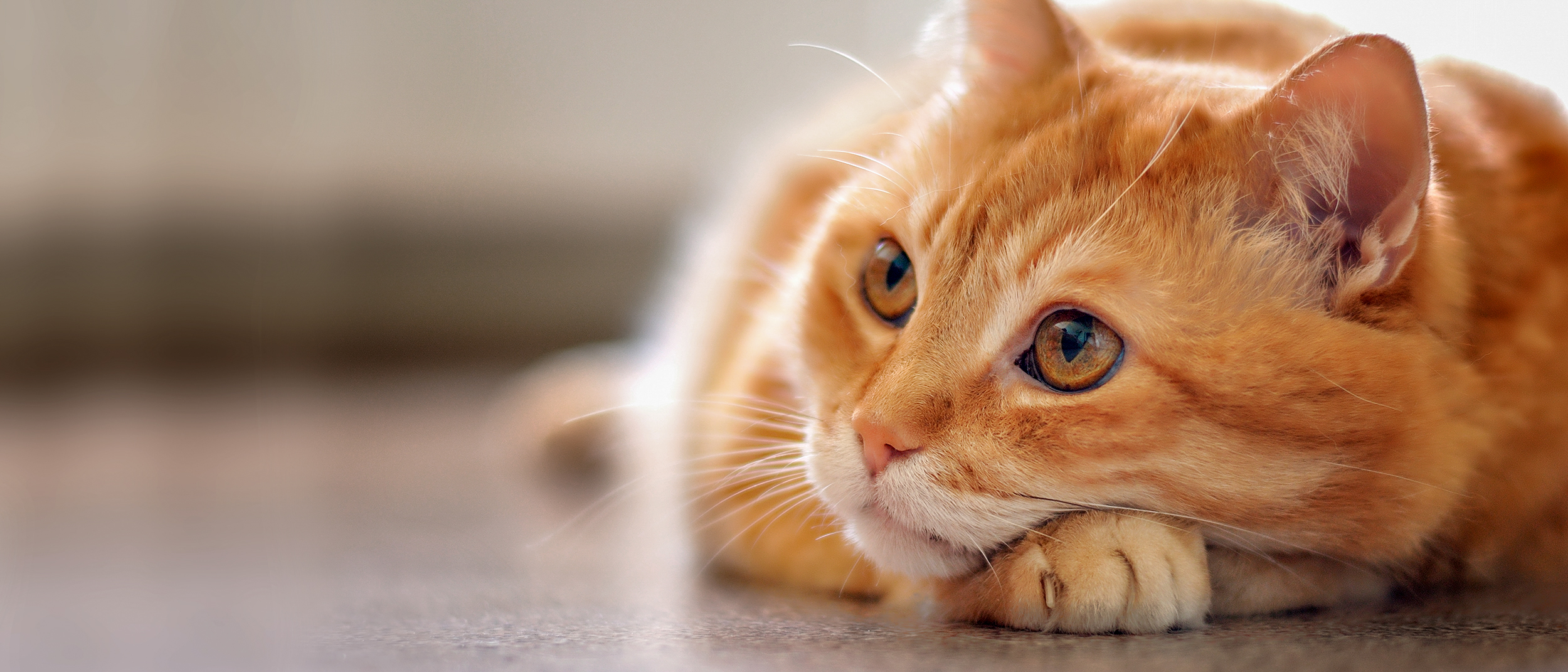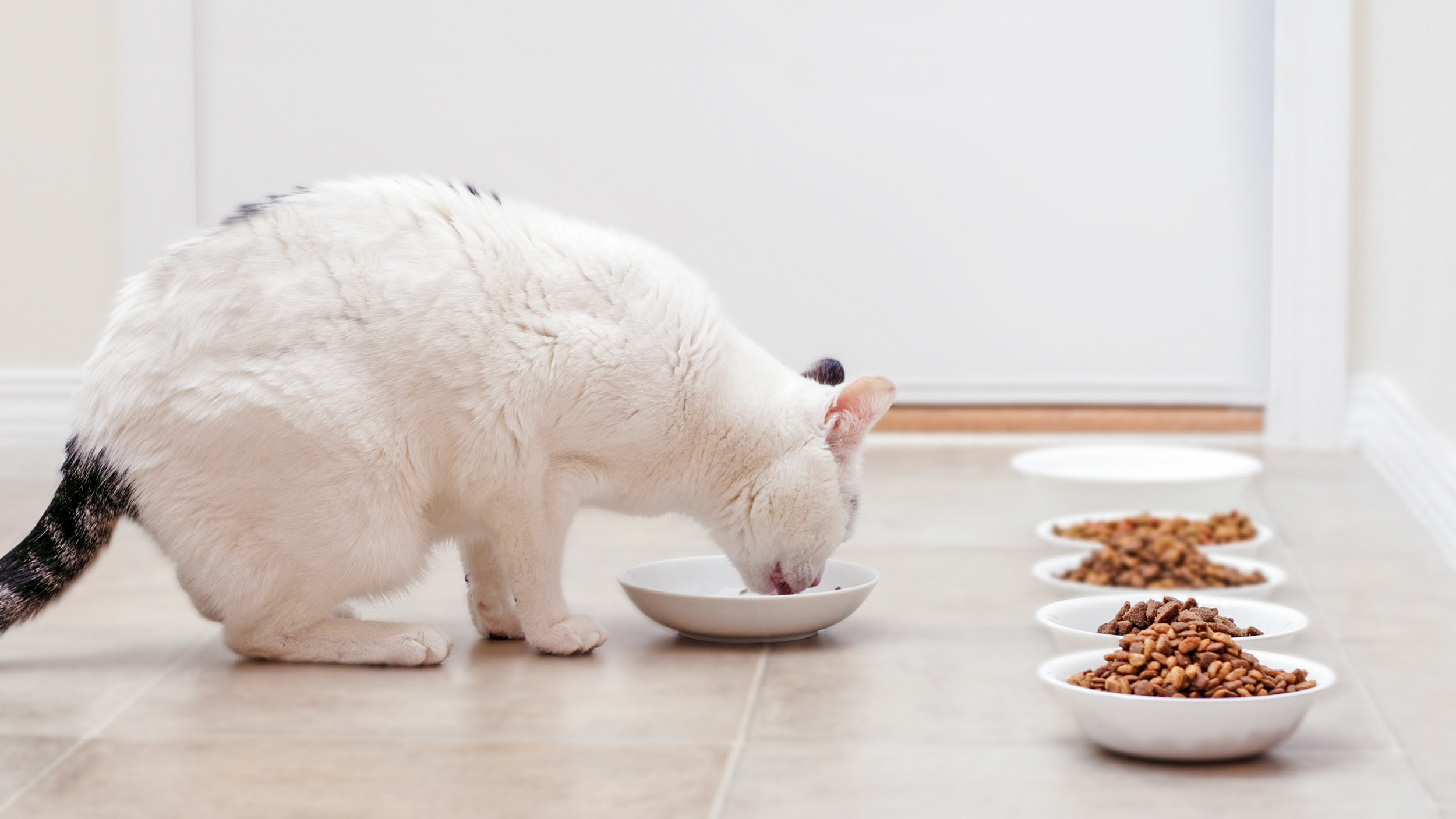Urinary incontinence in cats

As your cat gets older, you may start to notice some changes in behavior, including how often they urinate or go outside to eliminate.
Incontinence elimination can occur among older and elderly cats. Inappropriate elimination has a range of causes and effective treatment options that can be recommended by a vet.
What are the symptoms of incontinence in older cats?
If your cat is suffering from urinary incontinence, they may not recognize when they are urinating, leaving trails of pee in the house. A cat with fecal incontinence may not have control of their defecation.
Cats may also display inappropriate elimination due to a health problem that causes increased urination, diarrhea, or pain when using the litter box. Inappropriate elimination caused by these disorders is usually not the same thing as incontinence. Learn more about your cat's urinary health here.
What causes incontinence in senior cats?
There are several potential causes of incontinence in cats, and each requires specific treatment and proactive measures. In the case of elderly cats, the muscles associated with the urinary or digestive systems become weaker and they have less control over them.
What we often think of as "weaker bladder muscles" or "weaker bowels" is often due to weakness in the muscles that control bladder or bowel emptying. These include the sphincter muscles of the urethra and anus.
Weakness in these muscles can be caused by a variety of underlying disorders, like diseases of the spinal cord, or neurological degeneration, and can result in incontinence, as your cat is unable to use them effectively to stop elimination. Most often, what appears at first glance to be incontinence is inappropriate elimination caused by a different underlying health condition.
In some cases, arthritis may also appear to cause incontinence in elderly cats. If an older cat is suffering from osteoarthritis, it can make getting in and out of their litter box painful. As a result, your cat may choose to avoid their litter box and urinate somewhere which is easier to access. In these instances, your aging cat may not actually have incontinence, so it's important to check with your vet for an accurate diagnosis.
Diabetes mellitus can affect cats and two common symptoms including, peeing in higher volumes and excessive peeing, may give the appearance of incontinence. Overweight cats are at a higher risk of diabetes; if you notice more frequent urination, along with increased thirst and hunger, visit your vet straight away.
Senior and geriatric cats can suffer from cognitive impairment as they age. Cognitive impairment manifests itself as sleeplessness, increased anxiety, disorientation, vocalization, and loss of routine. When suffering from cognitive impairment, your cat may be displaying signs that are easy to confuse for incontinence. This is because they may have trouble remembering that the litter box is the appropriate place to urinate.

How can I care for my incontinent cat?
It’s important to visit your vet if you spot any symptoms of incontinence in your elderly cat. Your vet will be able to identify the cause and provide you with the appropriate treatment. Some of the treatments which your vet may prescribe, depending on whether your cat is truly incontinent, or is suffering from another condition causing inappropriate elimination, include:
- Muscle stimulant which allows your cat greater control over the muscles controlling elimination.
- Nutritional intervention to promote digestive and urinary health.
You may also wish to make some adjustments around the house to make it easier for an older cat to use their litter box.
Learn about the changes you can make to your elderly cat's environment to support their urinary health in Why Is My Cat Peeing Everywhere?
While incontinence in your elderly cat can be distressing and frustrating, there are ways to help support their recovery and improve their health. Visit your vet for further help and information.
Related Articles
Like & share this page